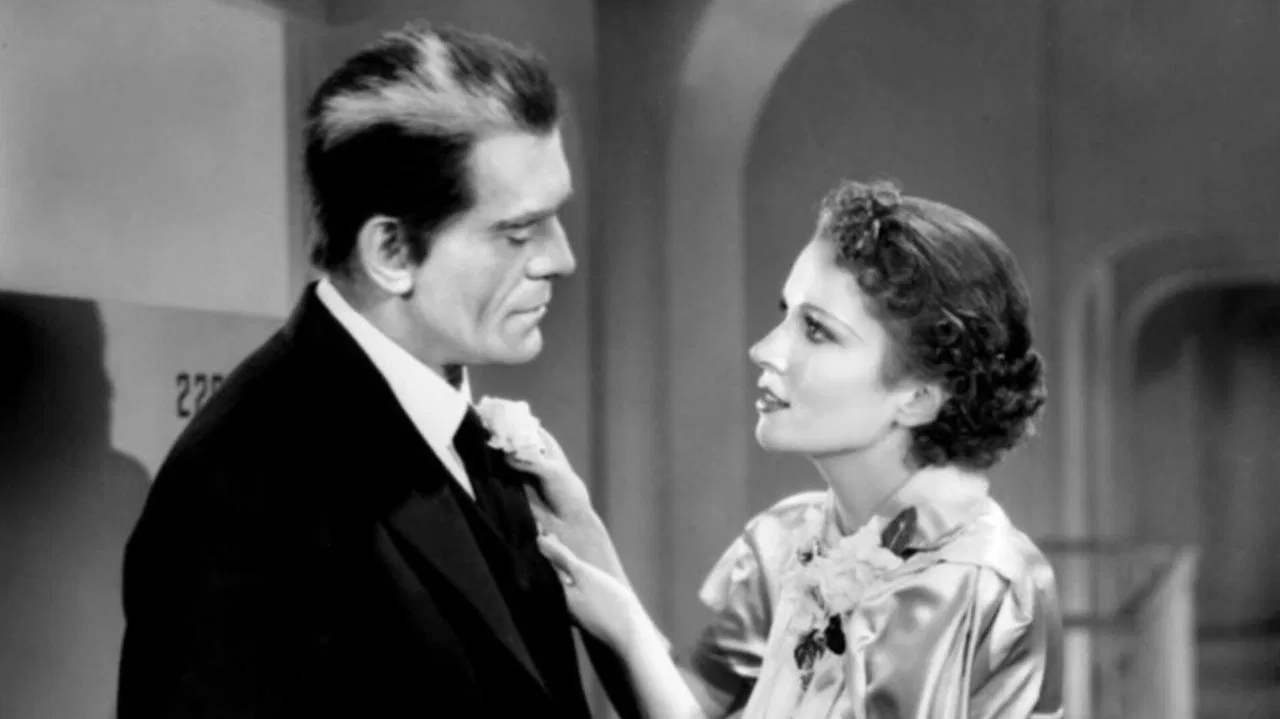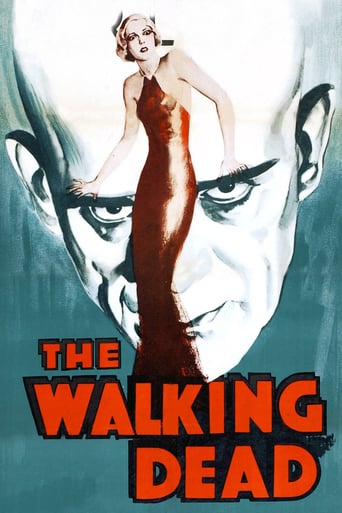

"The Walking Dead" is one of those films that may not be shown too often but when it is, you get your money's worth.Released in 1936, Boris Karloff plays a man who is wrongly convicted of the murder of a local judge.A scientist brings Karloff back to life after conducting various experiments. The gangsters responsible are brought to book by Karloff in his own way.Michael Curtiz directs this one with a more "no- nonsense" but professional manner. Running at about 65 minutes, "The Walking Dead" has plenty of enjoyment.
... View MoreBecause he spent so much of his career making horror films, there's a tendency to forget what a splendid actor Boris Karloff was. "The Walking Dead" is a perfect example. An innocent man condemned as a murderer, he's brought back to life by inventor Edmund Gwenn. Oddly enough, he harbors no animosity against the men who framed him. But somehow, one by one, they suffer bizarre accidents. It's wonderfully typical Karloff stuff -- made more enjoyable by his sense of wonder at how these fatal incidents keep happening. Credit director Michael Curtiz with ingenuity in setting up the deaths and Karloff's mixture of confusion and grim satisfaction at his inadvertent revenge.
... View Morethis is an interesting film but it has holes in the story.this is not a zombie film.Karloff gets his vengeance but it comes at times without a clear explanation. for instance, when Karloff suddenly appears in the boarding house where his first victim is, how does Karloff know to go there? how did he remember this person?has he been holding out on the doctor when he was queried about being able to remember his past?or has Karloff developed another capability when he was brought back to life? the ability to read minds and know the whereabouts of the people he seeks to destroy?not a sixth sense but maybe ESP or something psychic.this holds true as well for his second victim at the train station. Karloff is there waiting for him, yet how did Karloff know the guy would show up there?we are not given this information in the story or any clue of it.these are some of the holes in the story, and thus it makes the film disjointed.
... View MoreOffhand, I cannot think of another actor who gave us a more impressive run of films in the horror genre than Boris Karloff did in the 1930s. Starting with the sensation that was 1931's "Frankenstein," Boris continued to appear, year after year, in films for Universal, Columbia and (English studio) Gaumont that are now deemed eternal classics in the genre. In 1935 alone, the so-called "King of Horror" appeared in "The Black Room," "The Raven" and "Bride of Frankenstein," and his second horror film of 1936, following "The Invisible Ray," found him at a new studio, Warner Brothers. That film was "The Walking Dead," a remarkable film in many ways and yet another success for Karloff. The film's plot is one that would be adapted and only slightly reworked for several future Karloff pictures, such as "The Man They Could Not Hang" and "Before I Hang," but one that here seems fresh and winning.In the film, Uncle Boris plays the part of John Ellman, a mild-mannered pianist who, when we first encounter him, has just been released from jail after a 10-year stretch for accidental homicide. His newfound freedom is short lived, however, since a gang of high-toned racketeers has just killed a local judge and fixed it so that Ellman appears to be the guilty party. With one of the racketeers, Nolan, acting as his defense counsel, Ellman's fate is assured. He is convicted of the crime and summarily electrocuted, shortly before he is cleared by new evidence. Fortunately for him, a local scientist, Dr. Evan Beaumont, has just come up with a method of resuscitating the dead, and so the wrongfully executed man is brought back to the world of the living. But much of Ellman's memory has apparently been wiped away during his death state, he is now even more mild mannered and befuddled than before, and he sports a new and startling white streak in his bushy hair. Before long, though, the sound of a piano recalls Ellman to himself, and, by dint of some sort of supernatural agency, he somehow gains knowledge of the men who had framed him...along with an awareness of their exact locations, and an overriding desire to go after them...."The Walking Dead," however, boasts a twist that some of those other reworked films do not. Here, the Karloff character is NOT a violent man, bent on bloody vengeance. Rather, he simply wants to interrogate his framers, and ascertain why they have contrived evidence against him. It is Ellman's mere threatening presence that drives his victims to do themselves in...by falling out of a window, running into a locomotive, etc. Apparently, it was Karloff himself who insisted on this twist; the film's original script depicted him as a violent, hairy, drug-addicted alcoholic! Although some viewers might have preferred seeing Boris in all-out killer mode, his gentle but threatening demeanor here (just look at how intensely he glares at his framers, during his piano recital!) is quite effective enough. Karloff even looks like the Frankenstein monster at times...minus the neck bolts, of course! It is a wonderfully understated performance by the great English actor. And he is abetted by some other top-flight talent here, including Ricardo Cortez (the original Sam Spade, in 1931's "The Maltese Falcon") as Nolan, Edmund Gwenn (perhaps best known as Kris Kringle in 1947's "Miracle on 34th Street" and Dr. Harold Medford in 1954's "Them!") as Beaumont, and tough-guy Warner Brothers character actors Barton MacLane and Joe Sawyer as two of Ellman's "enemies." The film has been helmed with style to spare by the great Hungarian director Michael Curtiz (this was his only teaming with Karloff), whose use of odd camera angles, unsettling close-ups and striking use of light and shadow help to elevate the film to the level of screen art. Curtiz had already impressed horror fans with 1932's "Doctor X" and '33's "Mystery of the Wax Museum" (both with Fay Wray and Lionel Atwill), and would of course go on to direct such Hollywood classics as "Captain Blood," "The Adventures of Robin Hood," "The Sea Hawk" (all starring Errol Flynn), "Yankee Doodle Dandy," "Casablanca" and "Mildred Pierce." What an incredible career! He brings "The Walking Dead" home in a succinct, no-nonsense manner. The picture is remarkably concise, and at a mere 66 minutes in length, might fairly be accused of being TOO concise. (Indeed, five of the film's deaths, not to mention Ellman's ultimate fate, plus questions regarding the nature of the afterlife, are neatly shoehorned into the film's final 20 minutes!) The art of creating a short feature film such as this seems to have been lost, and indeed, it is doubtful that today's filmgoing public would be willing to pay $14 for a 66-minute entertainment anyway. Still, when done as well as Curtiz' work here, these brief pictures can be extremely satisfying affairs. Short and not so sweet, "The Walking Dead" finds its creators near the very top of their game. Like Ellman himself, it has experienced a well-deserved resurrection....
... View More